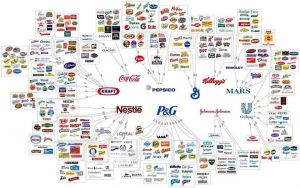Corporation


A traditional corporate entity is a collective of people joined together by articles of incorporation in pursuit of profit. Although it may be comprised of individual parts such as directors, officers, and shareholders, a corporation is a legal entity in and of itself this was determined by Santa Clara County vs Southern Pacific Railway in the U.S. Supreme court[1]. This case was a dispute over a railway route, whether U.S. Supreme Court set precedent that a private corporation was a “natural person” under the U.S. Constitution and therefore entitled to protection under the Bill of Rights.
Behaviour
Corporate entities have a fiduciary duty to pursue profit for the financial gain of shareholders. This paramount, binding principle has been anthropomorphised[2] as giving corporate entities the psychopathic characteristics. However, corporates are not humans they are inert machines.
Research has found people with narcissistic traits tend to get promoted 39% faster in their progression to CEO[3] and that there are at least three times as many psychopaths in executive or CEO roles than in the overall population[4] . The importance of this fact is emphasised by the knowledge that psychopaths, at around 1% of the adult population, are reported to be responsible for about 50 % of all serious crimes and constitute 20% of (North American) prison populations[5].
References
- ↑ U.S. Supreme Court (1886): Santa Clara County v. Southern Pacific R. Co., 118 U.S. 394. Decided: May 9, 1886. Accessed 6th Jan 2022 via https://supreme.justia.com/cases/federal/us/118/394/
- ↑ Bakan, Joel, The Corporation: The Pathological Pursuit of Profit and Power. New York: Free Press, 2004.
- ↑ The Leadership Quarterly: The perks of narcissism: Behaving like a star speeds up career advancement to the CEO position. Published June 2021, Accessed 14th January via https://doi.org/10.1016/j.leaqua.2020.101489
- ↑ Corporate Psychopathy: Talking the Walk
- ↑ Hare, R. (1999). Without conscience: The disturbing word of the psychopaths among us. New York: Guildford Press.